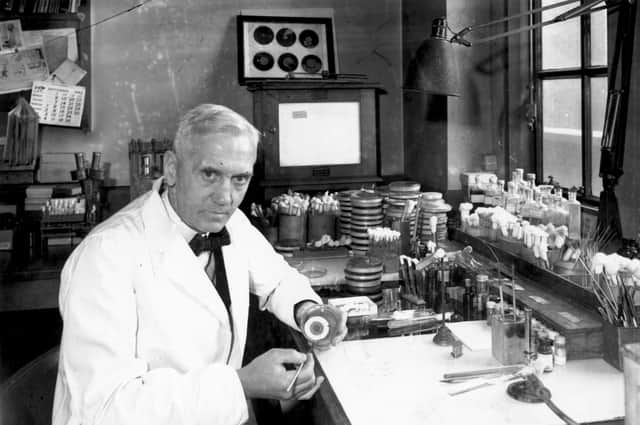Threat of antibiotic resistance must be taken more seriously – Scotsman comment


David Cameron’s return to the UK Cabinet has produced a decidedly mixed response, even from within Conservative ranks. However, on one issue at least his presence in government could prove to be hugely important: the growing danger posed by antibiotic-resistant infections.
In 2014, the then Prime Minister won praise from the World Health Organisation for his “strong leadership in raising awareness about the global threat posed by antimicrobial resistance”, after he commissioned a major review of the issue. Cameron said at the time: “Resistance to antibiotics is now a very real and worrying threat… If we fail to act, we are looking at an almost unthinkable scenario where antibiotics no longer work and we are cast back into the dark ages of medicine where treatable infections and injuries will kill once again.”
Advertisement
Hide AdAdvertisement
Hide AdHowever, unfortunately, such warnings about crises that may seem far in the future – like those made by scientists about the threat of a pandemic for years before Covid struck – have a tendency to be downplayed. So, nine years on from Cameron’s warning, experts like UK Health Security Agency chief executive Jenny Harries are still issuing wake-up calls to a world that keeps wanting five more minutes of sleep.
“Antimicrobial resistance is not a crisis of the future, but one that is very much with us right now,” she said. “We expect that if we get a bacterial infection, an antibiotic will be available to treat us but, sometimes, already, that is simply impossible. Unless action is taken, the availability of life-saving treatments will only diminish...”
Before Alexander Fleming’s discovery of penicillin was turned into an effective drug, the slightest scratch received while gardening, for example, could prove fatal. Without these effective drugs, many operations would no longer be advisable because of the risk of infection.
Overuse of antibiotics – which have absolutely no effect on viruses like flu – is part of the problem, as is the lack of economic incentive for drug companies to develop new ones. Part of the solution is having politicians in power who understand and act on scientists’ warnings before it’s too late.
Comments
Want to join the conversation? Please or to comment on this article.
